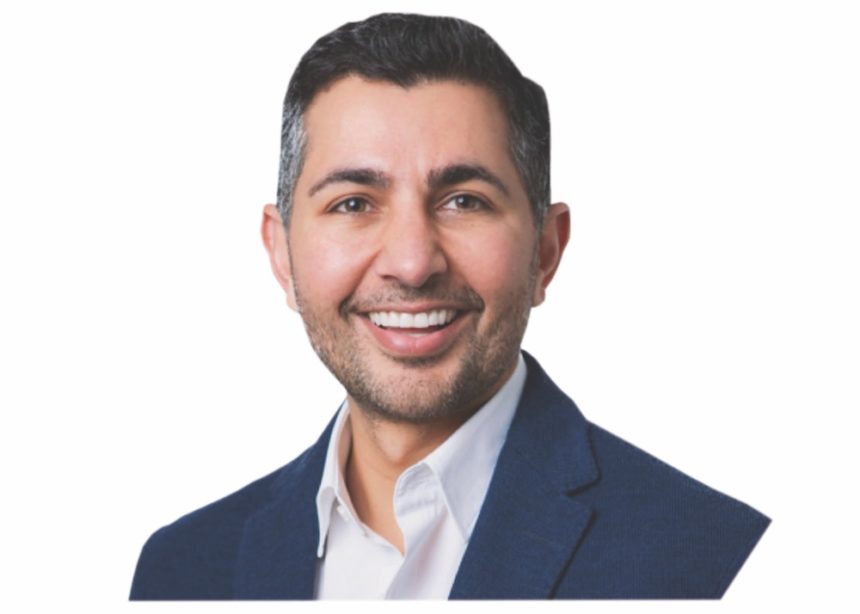Evolus CMO Mike Jafar has only good things to say about Allergan, his former employer and current competitor. He praises its people, its vision and the way it almost single-handedly transformed aesthetics into a full-fledged category. But when asked about learnings from his 15-year Allergan tenure that have informed his current mission, he responds with an unusual metaphor.
“Have you ever seen a caged animal let out in the wild?” he asks, followed with a deep laugh. “With all due respect and admiration for where I’ve been, I’m trying to do every single thing different from anything I’ve been a part of historically.”
He doesn’t stop there. “I used to be part of a pharmaceutical company that just got into the aesthetics space. Now I’m purposefully designing a beauty company for the space. That’s a big difference.”
Jafar’s approach is one part canny marketing strategy and one part existential necessity. Evolus’ neurotoxin Jeuveau arrived late to a $1 billion market dominated by Allergan’s Botox and populated by offerings from Nestlé (Dysport, sold by Galderma) and Merz (Xeomin). Scientifically, the Jeuveau molecule is identical to the Botox one, which means Evolus has little choice other than to distinguish itself via marketing.
It’s a challenge Jafar relishes. “To develop a culture and a set of marketing principles from the ground up, that’s a dream for any marketer,” he says. “You’re not shackled by brand stigmas. You’re not held back by processes that have been in place for many years.”
Since arriving at Evolus in June 2018, Jafar has minded the big- and small-picture brand details, and pretty much everything in between. He takes pains to note that the company’s official hue is coral, “the Pantone color of the year”; Evolus’ business cards are as soft to the touch as some drapery.
However, what appears to have captured Jafar’s imagination most is the opportunity to reinvent the traditional relationship between physicians and the companies that hope to sell them on the virtues of a given brand.
“Two things the pharma industry robs from marketers are the ability to have an influence on consumers and to provide meaningful value to doctors,” Jafar explains. “No matter how great your value proposition is or how well it is packaged, the make-or-break [entity] is the payer. What you’re really marketing to is a set of committees in the hope that they’ll give you access to a set of lives.”
Jafar prefers the approach he and his Evolus team have crafted, which attempts to forge emotional connections with physicians and encourages them to bond their personal brands to Evolus’ corporate and product ones. He rhapsodizes about the doctors who have engaged with the company’s social media channels and taken it up on joint branding opportunities.
No matter how great your value proposition is or how well it is packaged, the make-or-break [entity] is the payer.
However, Jafar notes that aesthetic products and procedures afford the companies behind them liberties unavailable in just about every other category.
“You don’t have ophthalmologists or cardiologists attaching their personal brand to Lipitor or an eye product. Their brands are mostly about where they went to school,” he explains. “In aesthetics, they depend on us. They use what we do to differentiate themselves to consumers.”
Dr. Justin Harper, medical director of Juvly Aesthetics, a medical spa practice with 11 locations across the U.S., admires what he’s seen. “Mike isn’t following the old playbook. He knows they need to play big,” he says. “The noise they’ve created is pretty remarkable, because the [Jeuveau] product cycle lasts for 90 days and they didn’t launch much more than 90 days ago. It’s hard to convince physicians to trust something until they’ve seen it come full circle.”
Harper also appreciates how Evolus has positioned itself against Allergan and its Botox juggernaut. “Allergan probably spends more on a single ad campaign than [Evolus] has in its entire budget,” he notes. But Jafar says that Evolus’ goal is less to take the category champ down a peg than to expand the overall market size. To do so, the company has constructed an appeal to what it perceives to be three underserved constituencies: “beauty extroverts,” “proactive anti-agers” and “subtle seekers.”
So while Evolus hopes to be the No. 2 player in the toxin space within two years, it has little interest in “stopping people using Botox,” Jafar says. “We’re fine with proving ourselves to the market. We don’t have to be everything to everyone right away.”
From the October, 01 2019 Issue of MM+M - Medical Marketing and Media








